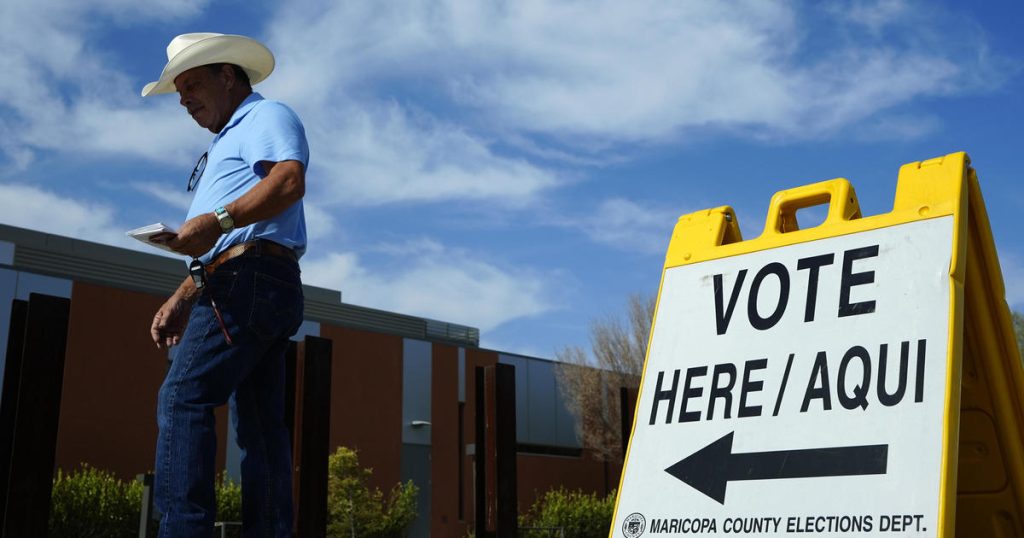The Arizona Supreme Court ruled that almost 98,000 people whose citizenship had not been confirmed can vote in state and local races. This decision came after officials discovered a database error that mistakenly allowed these voters access to the full ballot for the past two decades. Secretary of State Adrian Fontes and Maricopa County recorder Stephen Richer disagreed on how to handle the situation, with Richer seeking the court’s intervention. Fontes argued that not allowing these voters to access the full ballot would raise concerns of equal protection and due process.
Despite Richer’s objections, the high court sided with Fontes, stating that county officials did not have the authority to change the voter statuses of individuals who had registered long ago and attested to their citizenship under penalty of law. The justices emphasized that the affected voters were not at fault for the database error and highlighted the limited time remaining before the November 5 general election. Chief Justice Ann Scott Timmer emphasized the court’s reluctance to disenfranchise voters en masse from participating in state contests.
Arizona has a unique requirement for voters to prove their citizenship to participate in local and state races. This can be done by providing a driver’s license or tribal ID number, or by attaching a copy of a birth certificate, passport, or naturalization documents. A system coding error in the voter registration database incorrectly categorized nearly 98,000 voters who had obtained licenses before 1996 as full-ballot voters. While this error would not have impacted the presidential race, it could have significant implications in hotly contested state Legislature races and ballot measures, including issues related to abortion and immigration.
The ruling by the Arizona Supreme Court potentially has far-reaching consequences for the upcoming general election, as the votes of these individuals could prove decisive in closely contested races. Both Republican and Democratic officials involved in the process expressed their gratitude for the court’s quick review of the case and their collaborative efforts to address the error. Moving forward, steps will likely be taken to rectify the database error and ensure that similar mistakes do not occur in future elections.
Overall, this decision highlights the importance of ensuring the accuracy of voter registration databases and the eligibility of voters to participate in elections. It also underscores the need for cooperation between officials from different parties to address potential discrepancies and uphold the principles of fairness and inclusivity in the electoral process. As the November election approaches, the focus will now be on ensuring that all eligible voters have the opportunity to exercise their right to vote and have their voices heard in the democratic process.


